Cargando...
Recursos educativos
-
Nivel educativo
-
Competencias
-
Tipología
-
Idioma
-
Tipo de medio
-
Tipo de actividad
-
Destinatarios
-
Tipo de audiencia
-
Creador
Lo más buscado
- Eras geológicas
- Guía didáctica
- Experimentos en inglés
- Aprender a leer jugando
- Guía de multiplicaciones
- Países de África
- Rhyming words
- Experimentos cientificos escolares
- Guía interactiva
- Uso de g y j
- Instrumentos de cuerda
- Juegos de tangram de figuras
- Experimentos de ciencias
- Plantillas de letras para niños
- Actividad de multiplicaciones
-
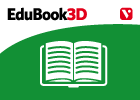
Medieval institutions - The Great Peninsular Kingdoms
EduBook Organización
- 3207 visitas
The political structure of the kingdoms was based on three institutions: the monarchy, the Cortes and the municipal council. The Cortes were created when the monarchs allowed municipal representatives…
-

King John and the Magna Carta - King John and the Magna Carta
EduBook Organización
- 2926 visitas
After the death of King Richard in 1199, King John became the King of England. He liked hunting and taking baths!1 Almost no one took baths at that time. He lost most of the lands England had in France.…
-
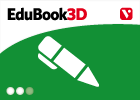
Check. War and liberal revolution (1808-1814)
EduBook Organización
- 3056 visitas
Remember what you have studied in this section and answer the questions: Why did Charles IV decide to fight the French? Why did Godoy allow French troops to enter Spain? What were the three main phases…
-
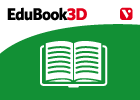
End-of-unit evaluation - Ancient History
EduBook Organización
- 2997 visitas
Ancient history began in about 4000 BC when writing was invented. About the year 1000 BC, two different tribes called the Iberians and the Celts lived on the Iberian Peninsula. In the year 218 BC, the…
-
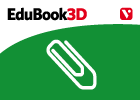
Cultural diversity
EduBook Organización
- 2938 visitas
Different ethnic groups have different customs, eating habits, and ways of dressing and social interaction. In short, each society has its own culture, its own way of seeing and interpreting the world,…
-
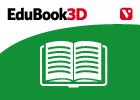
Unit 11: The Roman Empire
EduBook Organización
- 2942 visitas
Assemblies (n): a political institution made up of Roman citizens that made laws and elected public officials. barbarian (n): a person or community that was not part of the Roman civilisation and who…
-
Choose. The German national socialist ideology
EduBook Organización
- 2778 visitas
Identify whether the sentences refer to German or Italian fascism: Promise to create an empire controlling the Mediterranean. Defence of anti-Semitism, the superiority of the Aryan race and the need to…
-
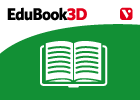
The political organisation of society: the state
EduBook Organización
- 2686 visitas
1.1. The state The state is made up of institutions that organise the lives of the people who live in the same territory. The laws and powers within it are the same for everyone. The territory and the…
-

Choose. Innovations in Italian sculpture and painting
EduBook Organización
- 2639 visitas
Do the following artistic innovations refer to sculpture or painting?: Mythological themes were added, especially nudes, busts and equestrian figures. Curves predominated, to give the work a sense of…
-
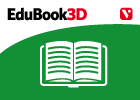
The Iberian Peninsula during the Middle Ages
EduBook Organización
- 2425 visitas
The Visigoths At the end of the 5th century AD, peoples from northern and central Europe invaded and conquered the Roman Empire. The most powerful of these was a Germanic tribe called the Visigoths. At…
Te estamos redirigiendo a la ficha del libro...












